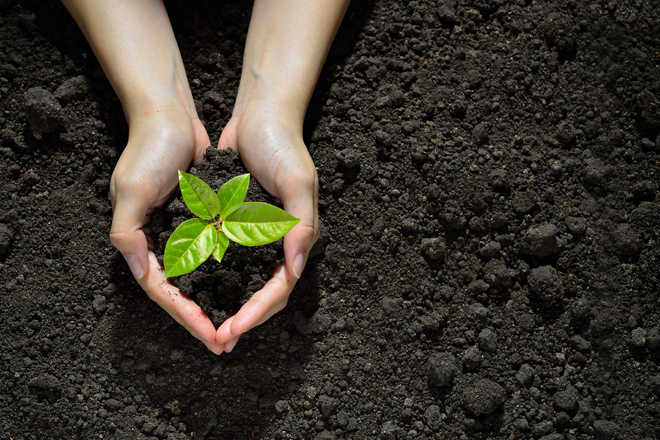Dr Satish K Kapoor
The word, karma, derives from the verbal root, kri denoting action. But actions, good or bad, do not begin and end in the present. As per the physical Law of Conservation, energy is never destroyed, but changes form. So does karmic energy which assumes the shape of samskara-s or impressions that germinate and fructify in present life or the next.
In ancient Indian literature, karma is used in the sense of sacrificial ceremonies to please higher powers, or viewed as acts of charity and penance to purify the inner self. Gradually, karma evolved into a full-fledged doctrine of cause and effect, called karma siddhanta, having eschatological and soteriological implications. The Gheranda Samhita (I: 7) says: ‘As the Persian wheel, in drawing water from a well, goes up and down, moved by the bullocks, so the soul passes through life and death moved by karma.’
The world is called karma kshetra or karma bhumi, the field of action, that none can escape. God is called karmaphaladata, the giver of results of actions performed at physical, mental, social or spiritual levels. Karma is of four types: the accumulated actions of past lives which do not influence a person’s present life are called sanchita; the actions of past life which determine his destiny, are called prarabha, and the actions which are performed in the present, are called kriyamana. Kriyamana or voluntary karma-s that are not immediately rewarded, but become the basis of agami or future actions.
Karma has also been classified as white, black, mixed or colourless, meaning respectively, the good, bad, both good and bad, and the trivial. In a ritualistic sense, karma has six more categories to it : nitya, those acts which are performed daily, like prayer and agnihotra yajna, the offering of oblations to fire; naimittika, those which are undertaken occasionally, like fasts, penances or pilgrimages; kamya, those which are performed with a specific purpose in mind; adhyatmic, those which are carried out with a spiritual motive, adhidaivic, those which relate to a tutelary deity such as a mantra, and adhibhautic, those which are related to material beings.
Actions which draw one to mundane activities are called pravritti karma; those which turn one’s mind inwards, are nivritti karma, and those which hurt or harm others, are pratishiddha karma. Karma-s are propelled by desire. Desires stem from thoughts. Thoughts set the pattern of actions. Says the Brihadaranayaka Upanishad (IV.4: 5-6) : ‘As a man acts, so does he become. A man of good deeds becomes good; a man of evil deeds becomes evil. A man becomes pure through pure deeds, impure through impure deeds. Man verily is desire-formed; as is his desire, so is his thought; as his thought is, so he does action; as he does action so he attains.’
The Buddha holds that one remains bound to the wheel of birth and death till one refines one’s actions by following the Fourfold Noble Truth and the Eightfold path. The mind which ties one to karma can simultaneously help one to attain illumination in nirvana. In the Jaina metaphysics, karma is of atomic nature and applies to all the four classes of beings - devas, humans, lower animals, and vegetation.
The factor of inequality among human beings is often attributed to the law of karma. But Swami Vivekananda argued that man is not ‘a powerless, helpless wreck in an ever-raging, ever-rushing, uncompromising current of cause and effect.’ He is a divine being, who can change the course of his destiny by realising his true identity. Those treading the path of Bhakti profess that by surrender and devotion to God and by meditation on His name, one neutralises the effect of bad karma.
When karma is transmuted to karma yoga, as advised by Shri Krishna in the Bhagavadgita, one is able to spiritualise one’s activities by first dedicating the fruit of one’s actions (karmaphala-arpana), to the Lord, then the action itself ( karma tarpana), and finally, renouncing even moksha, the quest for liberation.
(Dr Satish K Kapoor, a former British Council Scholar, is a noted educationist, historian and spiritualist based in Jalandhar city)
Unlock Exclusive Insights with The Tribune Premium
Take your experience further with Premium access.
Thought-provoking Opinions, Expert Analysis, In-depth Insights and other Member Only Benefits
Already a Member? Sign In Now










